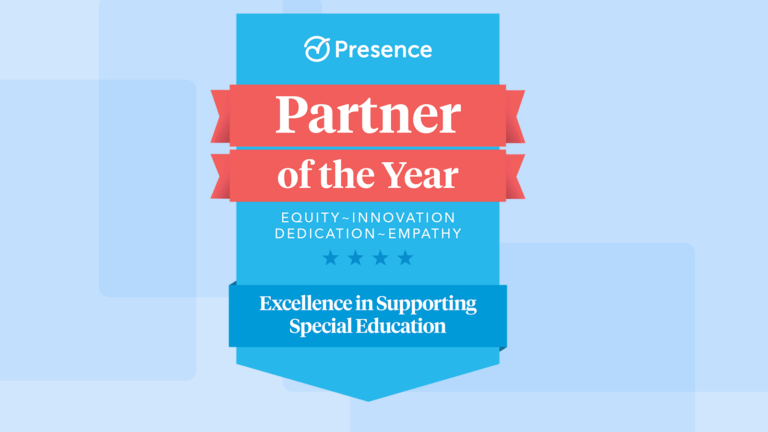This post is the fifth in a series based on a transcript from a recent Q&A with Dr. Barry Prizant as part of his webinar, “Family Collaboration: An Essential Element for SPED Success.” Questions came directly from audience participants — special education directors, special educators, speech-language pathologists, and parents, and answers are from Dr. Prizant. Click here to see additional questions from the Q&A.
As classrooms continue to get more and more diverse, with lots of different languages being spoken, different cultural backgrounds, different kinds of socioeconomic backgrounds, lots of different kinds of family structures, it seems like it presents some serious challenges for family collaboration, especially when there is a language barrier and the family doesn’t speak English. How do we best manage families of many cultural and linguistic backgrounds?
My first suggestion to these very complex issues is to educate ourselves about the culture where the families come from. Find out what they value, what they don’t value, and just how we can gain trust with them. As an example, when I was teaching a graduate program in communication disorders, some of my students were going out to the homes of recently immigrated new families, and they had a designated amount of time that they could visit each family as part of early intervention training. What they found was that there were issues around developing trusting relationships while visiting some of the families, and brought in a cultural interpreter to speak with the students after they had been doing some of these practices with home visits for a while. What the cultural interpreter brought up was that some of the families expressed concerns to her that the students would come in and they would want to begin doing their therapy and work with the kids right away even though the mother had prepared some wonderful snacks for them. They didn’t make the time to sit down, chat with the parents, and have snacks with them. It turned out that in Vietnamese culture, it is considered to be off-putting and maybe even a little bit insulting if you went to somebody’s home and they wanted to sit down and offer you something to eat and you declined.
Being aware of the culture and the cultural values in the long term is very, very important. As part of this, I mentioned a cultural interpreter and certainly that has to do with linguistic interpretation also. Can we, when we connect with a family, especially if there are significant linguistic differences and in some cases cultural differences, bring in other people who could serve as language interpreters or cultural interpreters? You might ask who might that be? In my experience a few years ago, we worked with a single mom recently immigrated from Puerto Rico. It turned out that her mother (the grandmother) was fluent in English had lived here already for a number of years. The young mother was was coming up to live with her mom and bringing her absolutely adorable little daughter, but had very limited English proficiency. So the grandmother came to many of the progress report meetings and the more formal PPT and IEP meetings. Not only did that serve to develop great trust with the mother, but it also helped the grandmother feel very, very engaged and very informed.
In most cases, it was literally sentence-by-sentence interpretation by the grandmother, and this wonderful mom was just so grateful to the staff that she would hug everybody and basically said we were angels for the way we interacted with her and the way we interacted with her child. This just could not have happened without a family member interpreting, but it doesn’t always have to be a family member. In many cases, church communities are more than willing to provide people to be both cultural interpreters and linguistic interpreters, but I think we have to really enter these situations understanding that, even more so than an English-speaking family that lives in the United States and is raising a child with a disability, there is this extra layer of stress and complexity when families come from different cultures or are not proficient in English, and we need to find the supports to put into place for those situations.
Another cultural difference is how parents view professionals. In some cultures, professionals are put up on a pedestal in the sense that parents feel that there is nothing that they can do to help their child, that it’s really up to us professionals to fix the problem. Here, I believe we have to engage in more parent education and helping them understand that they play such a central role and that we have a partnership with them. They are not going to be in this journey alone, we are going to be in the journey with them, but it needs to be a partnership. For some families, we can just cite, for example, the autism literature. When people have a look at the factors that relate to better outcomes for kids with autism, one of the greatest factors is family involvement.
Again, we are not saying that it is all on the parents’ shoulders because that would cause a lot of stress and guilt, but that we want them to be engaged. We are better as professionals when we have you, as parents, engaged. We will listen to you and we will respect what you have to say. With some families, however, this doesn’t mean we will always agree with what you say. For example, many parents of non-verbal kids feel that if we use non-speech systems, augmentative alternative systems, speech-generating devices, then their child will never need to learn to speak. If it is easy for the child to point to pictures or use an iPad, the child would never learn to speak. Well, it just so happens that the research tells us the opposite. Children are more likely to go on to acquire speech when they develop the social communication skills that underlie speech development, such as the ability to take turns and the ability to express different intentions.
Another example is where a parent’s sense or common sense is not accurate. It is commonsensical that a child who has other ways to communicate would not need to learn to speak. A related issue is when parents give advice to other parents that is either inaccurate or would not work for that particular child. We need to provide information, we need to be a resource, and we need to respect what parents bring to us, but at the same time we need to be factual and give good clear information based upon our experience, and in some cases it’s a compromise. In some cases we have to join with families and tell them, “Certainly, we could try that, but we are also going to do this and this as well.” When parents feel engaged and when they feel that they are being heard they more likely to be able to say, “You know, I came into this meeting thinking that I need to have it this way, but I respect what you are saying so let’s go along with that.”
Let me tell it back to the issues of cultural and linguistic diversity. I think that if we feel — especially those who are kind of culturally mainstream, middle class, English-speaking Americans — that we are ignorant in some cases of issues related to families of different cultures, then I think it is important for us to be try to be educated. In some cases this happens at the school level, and in some cases it doesn’t happen much at all and people fly by the seat of their pants. Of course it happens at a school level if there is a particular group that is culturally different and is a larger number of families, but too often we encounter isolated families or just a few, and I just see too many educators and therapists flying by the seats of their pants, and I think we need to gather more information when that happens.
Dr. Barry Prizant is a clinical scholar, consultant, researcher and expert on childhood communication disorders. His new book, “Uniquely Human: Seeing Autism Through a Different Lens” is scheduled to be released in August, 2015 by Simon and Schuster. To contact Dr. Prizant for a consultation or workshop in your district, visit https://www.barryprizant.com/.



